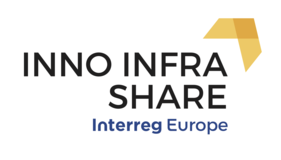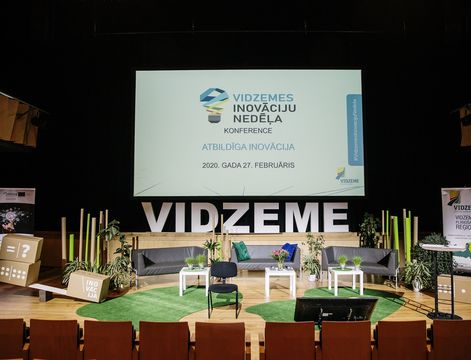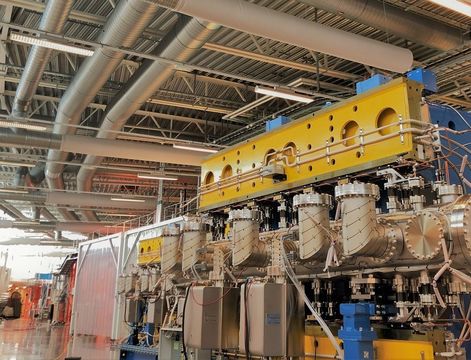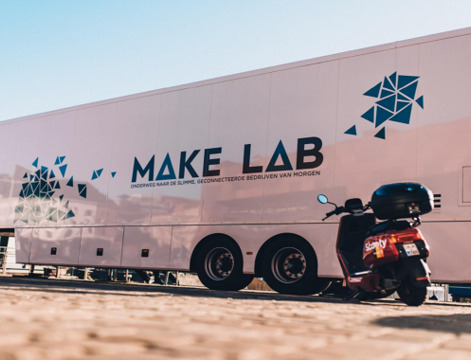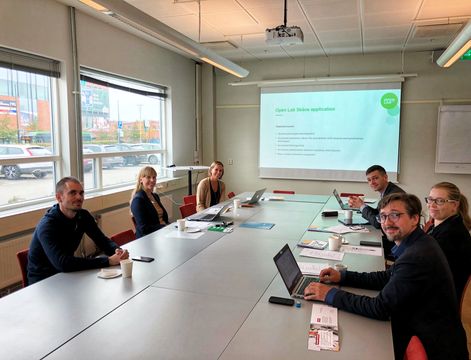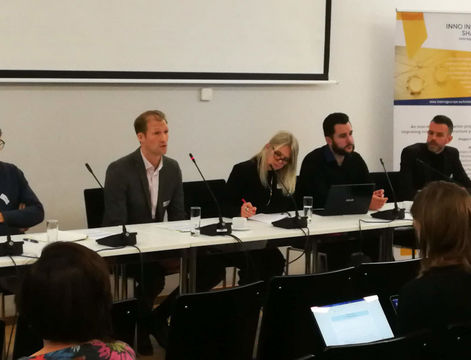With the 2nd session of the INNO INFRA SHARE online conference we have highlighted the policies and practices to facilitate and accelerate innovation-focused interregional cooperation. This session gathered 80 participants from RIIs, universities, state and regional policy makers from partner countries and contained presentations about barriers and opportunities for interregional innovation networks, European Digital Innovation Hubs (EDIHs), the state of play of Interreg Europe programme and partner presentations.
To summarize the session, moderator Alison Hunter noted:
"Recovery from the global health pandemic, and supporting EU industry to make successful green and digital transitions can be significantly boosted by RIIs since they offer place-based solutions to industry needs, while connecting innovation actors within and across EU regions, to join forces and upscale efforts. Clear gaps remain in the EU funding and governance landscape to enable this, but projects like INNO INFRA SHARE are generating crucial policy learning to overcome these challenges."
The 1st keynote was delivered by Kevin Morgan, professor of governance and development at Cardiff University, who focused on the new post-2020 interregional innovation investment instrument (I3) that addresses increasing demand from EU regions to accelerate innovation-driven interregional collaboration. It addresses two strands. Strand 1 is addressed to the more advance regions and will support partnerships to develop, connect or make complementary use of testing and demonstration facilities. Strand 2 is addressed to increasing capacity of regional innovation eco-systems and is addressed to less developed regions to help them participate in global value chains. Some of the challenges this instrument will face are unproportionally small funding, lack of synergies across different funds, governance challenges, regional challenges where Strand 1 regions may march ahead leaving Strand 2 regions lagging behind and industrial challenges to make RIIs accessible for all kind of companies.
Alo Lilles from Tartu City Government stressed the importance of a frequent interaction between university and industry for the innovation process. To define the right policy, a good knowledge of the regional institutional context is required. The City of Tartu, with help of the university and the industry, have tried to reinforce the collaboration between the RIIs and the industries, and as such strengthen their innovation ecosystem.
Vojtech Helikar from CEITEC, Brno University of Technology explained how the Covid crisis and the subsequent economic crisis influences CEITEC, particularly with respect to interregional collaboration and participation of companies in the research infrastructures. It has led to a more inward focus of the companies, also in relation to the RIIs and cross-border cooperation – industries are taking less risks, largely challenging cross-border EU cooperation for the future.
Katharina Schöps from Chemnitz University of Technology shared three main lessons regarding interregional cooperation. It is important to understand and explore the opportunities what it means to be part of the European innovation community. Matchmaking paradigms and procedures need to be updated, new methodologies to focus on new quality standards must be adopted. A sustainable and resilient network of people is what matters the most.
Kristaps Ročāns from Vidzeme Planning Region talked about development of regional innovation ecosystem in Vidzeme. Based on the learnings from the project, an annual innovation week is organized in the region and a Regional research and innovation consultative platform has been initialized. One of the key regional stakeholders - Institute for Environmental Solutions was invited to share their insights on how they have changed their approach towards opening their RIIs as a result of knowledge gained from the project. Managing director of the Institute, Inese Suija-Markova stated that even for privately funded institutes there is a great potential to become more open and accessible to others, but it needs a sustainable business model.
Final keynote was provided by Sandro D’Elia, Programme Officer at European Commission who explained the European policy of EDIHs which are the core of the European industrial policy. The aim is to allow SMEs and local governments to test digital technologies before investing, get skills and get people trained and get support in finding investment. The objective is to have one EDIH “within working distance” for every business in the EU, based on the competences locally needed. Place-based sensitivity is required to ensure that all EU regions can benefit from EDIHs, and not only those who are already operating at the “innovation frontier”.
The event was concluded with a presentation from the Interreg Europe Joint Secretariat, where Alexis Francois talked about the future of the programme.
